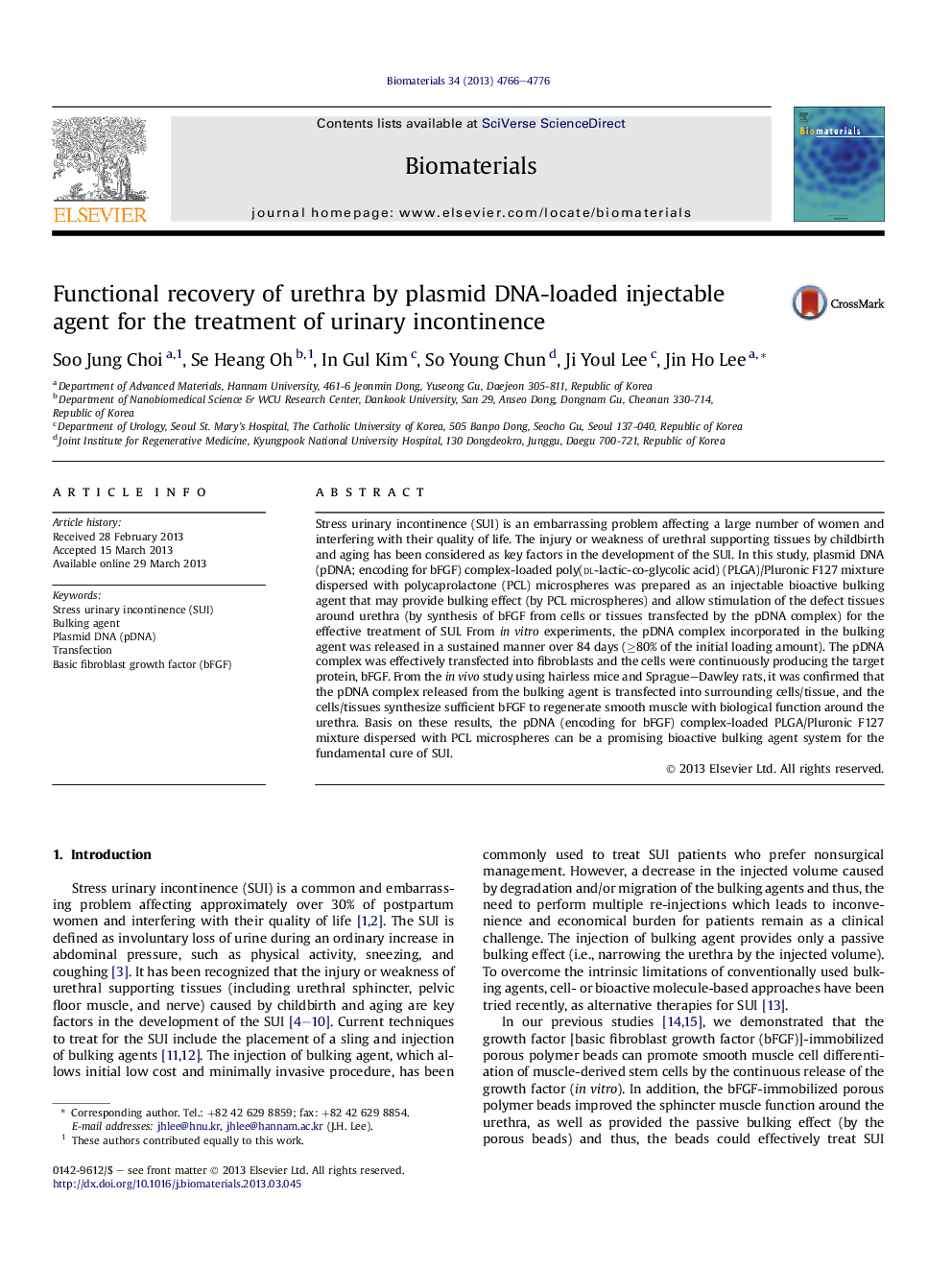| Article ID | Journal | Published Year | Pages | File Type |
|---|---|---|---|---|
| 6530 | Biomaterials | 2013 | 11 Pages |
Stress urinary incontinence (SUI) is an embarrassing problem affecting a large number of women and interfering with their quality of life. The injury or weakness of urethral supporting tissues by childbirth and aging has been considered as key factors in the development of the SUI. In this study, plasmid DNA (pDNA; encoding for bFGF) complex-loaded poly(dl-lactic-co-glycolic acid) (PLGA)/Pluronic F127 mixture dispersed with polycaprolactone (PCL) microspheres was prepared as an injectable bioactive bulking agent that may provide bulking effect (by PCL microspheres) and allow stimulation of the defect tissues around urethra (by synthesis of bFGF from cells or tissues transfected by the pDNA complex) for the effective treatment of SUI. From in vitro experiments, the pDNA complex incorporated in the bulking agent was released in a sustained manner over 84 days (≥80% of the initial loading amount). The pDNA complex was effectively transfected into fibroblasts and the cells were continuously producing the target protein, bFGF. From the in vivo study using hairless mice and Sprague–Dawley rats, it was confirmed that the pDNA complex released from the bulking agent is transfected into surrounding cells/tissue, and the cells/tissues synthesize sufficient bFGF to regenerate smooth muscle with biological function around the urethra. Basis on these results, the pDNA (encoding for bFGF) complex-loaded PLGA/Pluronic F127 mixture dispersed with PCL microspheres can be a promising bioactive bulking agent system for the fundamental cure of SUI.
